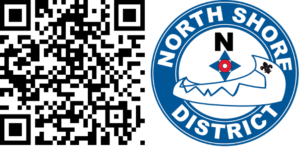By Justin Brundin KK7DTE
Every day we interact with millions of radio signals. A text message transmitted through cell phone towers, a website transferring information over Wi-Fi, our favorite music transmitting via Bluetooth, a semi-autonomous vehicle scanning for obstacles, all are a part of a vast network of radio waves that we rely on every day.
What happens when the infrastructure we rely on, goes down?
We are seeing the results of that right now in places like western North Carolina and in Tennessee, where power failures have rendered cell phones unable to connect to towers that are no longer powered, unable to access digital landlines, and unable to access internet. Even the 911 system is largely inaccessible.
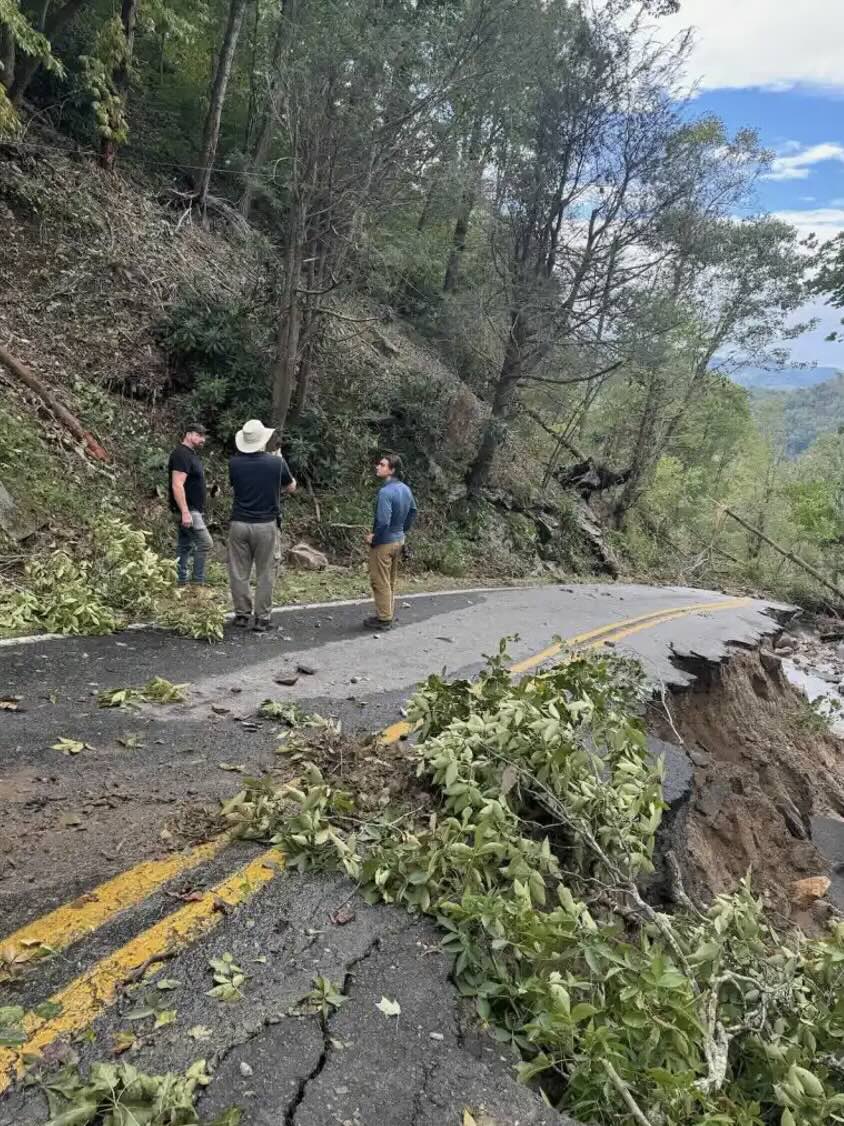
Right now there are stories like that of Thomas Witherspoon (K4SWL). “Residents are being urged to text 911 in emergencies, but in many areas, even that’s not possible.” Upon the clearing of the storm, him and neighbors started surveying the damage and looking for ways to get into town. Unfortunately, access to basic services are still out of reach for many people. “We also learned that the bridge connecting our community to Swannanoa had been completely washed away. Even if we cleared all the trees, there was no way to get vehicles across the water.”
This makes service to others, especially those at-risk neighbors, especially important.
“…We learned that one of our elderly neighbors urgently needed antibiotics for a tooth infection—she had a root canal appointment scheduled for this week, but there are no dentist office open. Another neighbor, Chris, and I made a plan to bike into town to find the medication Sunday.”
Communications among neighbors becomes extremely important. When emergency services are stretched thin or are even unavailable, small injuries and accidents become much more dangerous.
“Overnight, I charged several of my HTs (handheld VHF/UHF radios) and distributed them to neighbors (thankfully, I’ve collected quite a few of these over the years especially since everyone in our family has a license). I set up a simplex frequency and schedule so we could communicate. I also wrote down instructions in case someone accidentally bumped a button and needed to re-tune to the correct frequency.”
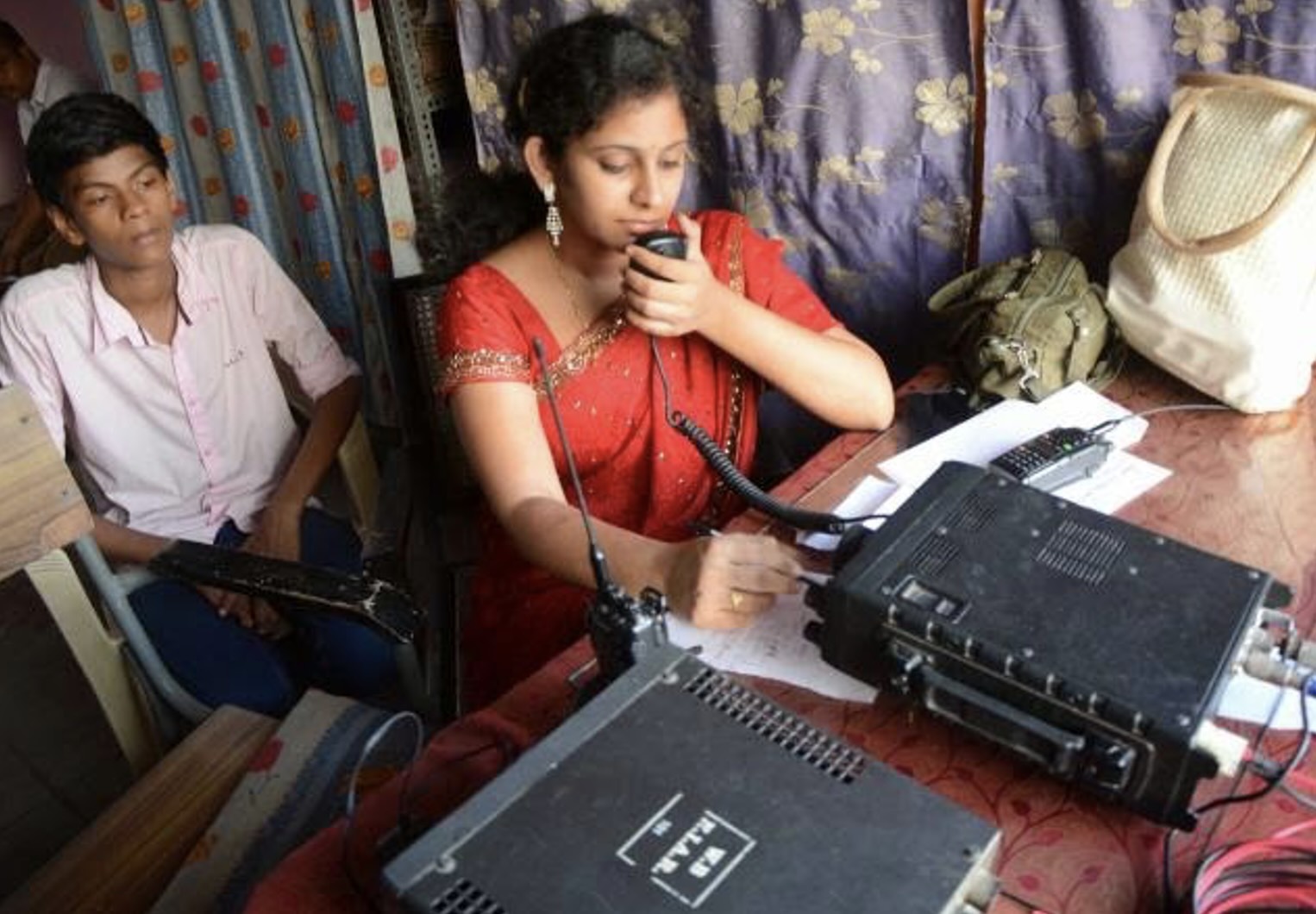
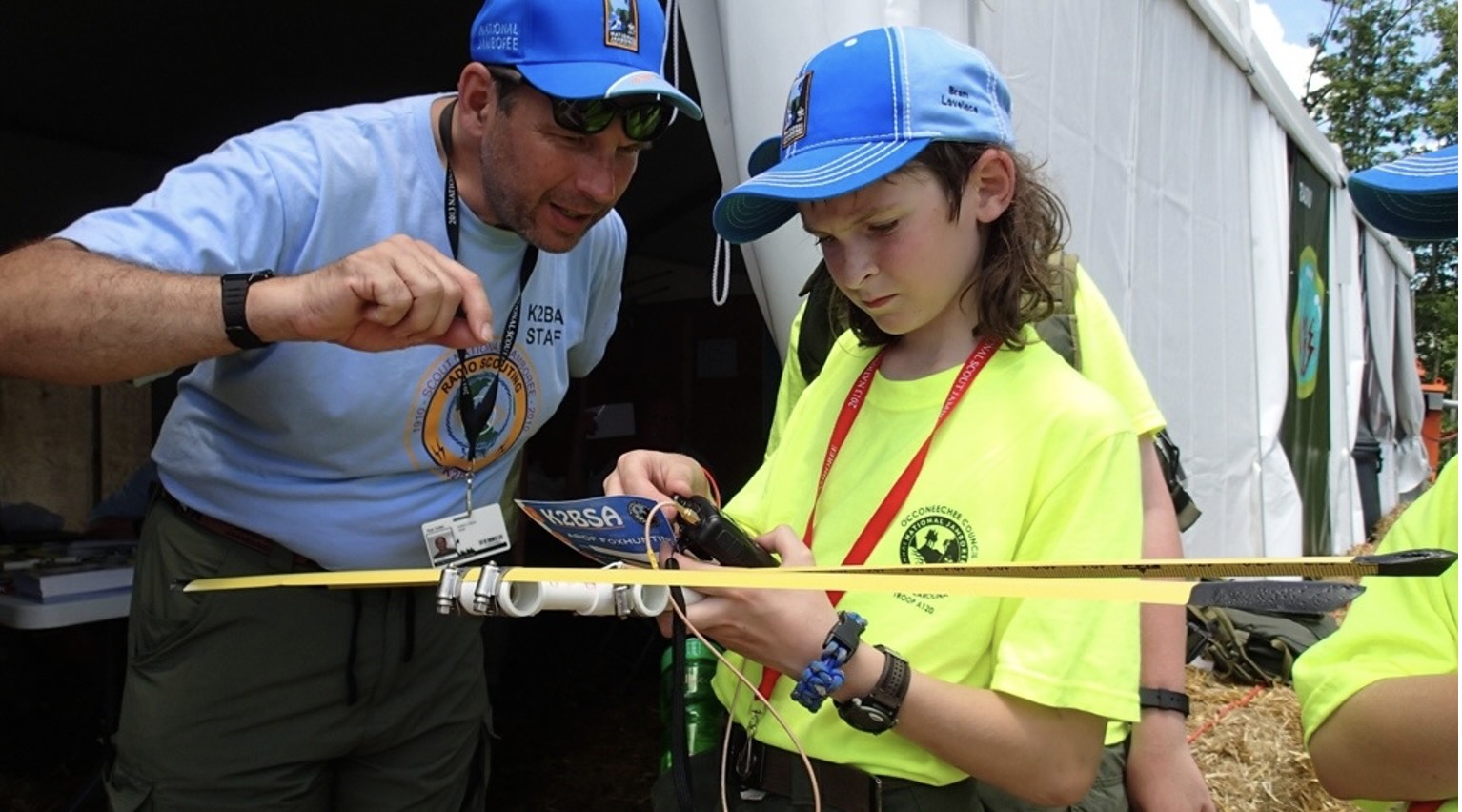
The knowledge and practice that comes with being an Amateur Radio Operator suddenly becomes a vital neighborhood resource. In emergencies, anyone can transmit on amateur radio frequencies, but the knowledge of how to operate the radio and how to coordinate wellness checks and other functions are a skill honed through practice.
Tom said, “No, most of these people don’t have licenses, but this is 100% a real emergency. Hams in the region have even been giving volunteers their radios to share wellness checks via our repeater systems and the emergency response network. Neighbors were excited to finally have a way to communicate and coordinate. Even though we all live on the same road, downed trees and other debris mean it can take 10-15 minutes to get from one house to another. The radios cut through all of that, giving us an instant way to share critical information. …having a radio is like having a superpower.”
We are told to be prepared and to always offer cheerful service. Amateur radio is a great way to practice that in our community. We have seen freezes, hurricanes, and cellphone outages recently that have required amateur radio operators to step up and provide that cheerful service. Scouts now have an opportunity to try it out for themselves, this month from Friday to Saturday, October 18th-19th at the Frank Fickett Service Center.
Jamboree on the Air First was devised by Leslie R. Mitchell (G3BHK) and was first held in conjunction with the fiftieth anniversary of Scouting in 1957. I has grown to be the largest event scheduled by the World Organization of the Scout Movement every year.
“JOTA-JOTI is an annual event in which Scouts all over the world connect with each other by means of internet and amateur radio. Short-wave radio signals carry their voices to virtually any corner of the world.
It’s the sheer excitement of having a live conversation with a fellow Scout at some other place in the world that attracts so many young people to this event.
JOTA-JOTI is a real Jamboree during which Scouting experiences are exchanged and ideas are shared.
The use of amateur radio techniques offers an extra educational dimension for Scouts. Many boys and girls grasp the opportunity to discover the world of wireless radio techniques and electronics.”
This year we are excited to share a new wonderful opportunity for Cub Scouts to join in on the fun with JOTA- JOTI. This has been historically offered to Troop level and above but this year we are offering Champions of Nature and the International Spirit Award to CUBS!
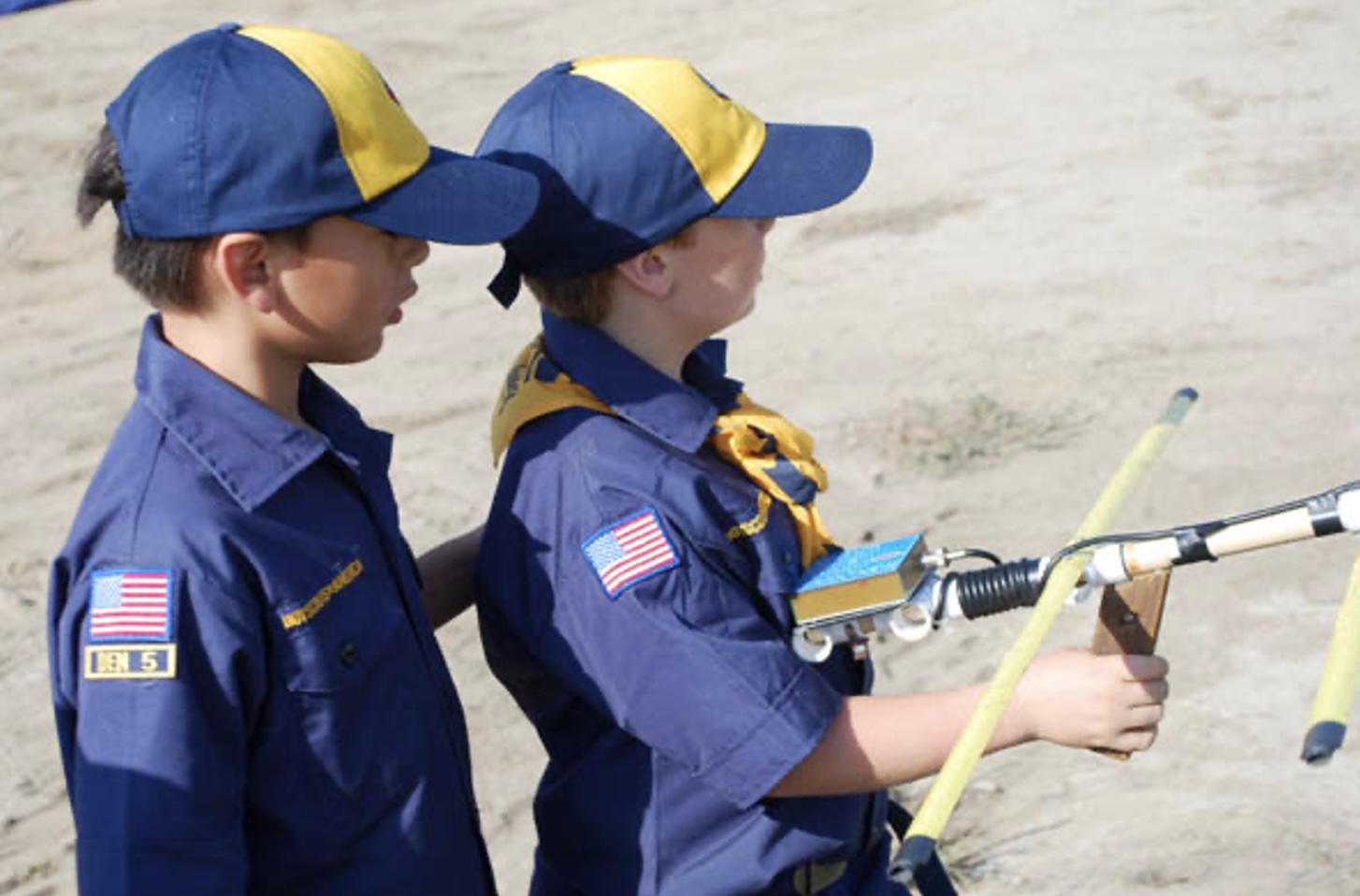
Register based on your level of Scouting as follows:
- Scouts BSA Participant. Your PASSPORT TO INTERNATIONAL SPIRIT will entitle you to participate in activities which will help you meet requirements for the International Spirit Award! You will also receive our special event patch! You can also register for the following Merit Badge Courses which are described in the Course Catalog attachment.
- Friday, October 18th from 5:45 – 9:45 pm: Scouting Heritage, Sustainability and Radio.
- Saturday, October 19th, 9:00 – noon Citizenship in the World, Signs, Signals and Codes, Soil and Water Conservation.
- Saturday, October 19th, 1:30 – 5:00 pm Citizenship in the World, Environmental Science, and Citizenship in the Nation.
- Cub Scout Participant. Your PASSPORT TO INTERNATIONAL SPIRIT will entitle you to participate in activities which will help you meet requirements for the International Spirit Award! You will also receive our special event patch! You can also work on your Cub Scouts Champions of Nature Elective!
- Adult Participant. Your PASSPORT TO INTERNATIONAL SPIRIT will entitle you to participate in activities which will help you meet requirements for the International Spirit Award! You will also receive our special event patch!
In addition, here are just a few of the activities you can enjoy:
- JOTI / JOTA – Jamboree-on-the-Internet (JOTI) and Jamboree On The Air
- Communicate by Ham Radio – Ham radio operators will reach out to Scouts around the globe, no internet or cell phone signal required! Radio Call Sign is: KA5BSA!
- International Scouting Midway –Scouters and Scouts alike can check requirements of the International Spirit Award by visiting over 20 displays about how Scouting is Creating a Better World.
- International Spirit Award & International Scouter Award – Learn about the International Spirit Award and International Spirit Award awards and work on some of the requirements.
- Messengers of Peace – Learn about the new, expanded Messengers of Peace
- SDG’s Learn about the 17 SDG’s and how you can make a difference.
- World Scout Jamboree 2027. The next WSJ will be held in Poland! International activities will be provided with Polish roots (ie food, games, flag, culture) so you can “Be Prepared!”
- World Friendship Fund – Learn about the World Friendship Fund!
- International Peace Light – Learn about the International Peace
- Friendship Knot – Learn how to tie the friendship neckerchief knot, then share it with your friends!
- Interpreter Strip. Get tested on your knowledge of foreign languages learn your Interpreter Strip.
- And much more!
REGISTER TODAY AT:
https://scoutingevent.com/564-81096
We hope to see your Pack or Troop here on October 18 and 19. Amateur radio can be a valuable community service, but it also is an amazing opportunity for your kids or even you to start a lifelong hobby exploring thing like hardware design, antenna technology, email-by-radio, amateur television, radio astronomy, software development, cultures around the world, electronics repair, the history of communications technology, and even space exploration. If you have questions about the event contact:
Lynn Brooks – International Scouting Representative: lobrooks@austin.rr.com
Jessica Snider – International Committee Staff Advisor: jessica.snider@scouting.org
Richard W. Clement AE6QE – President, Capitol Area Council Amateur Radio Club (KA5BSA) – clementrw@proton.me


